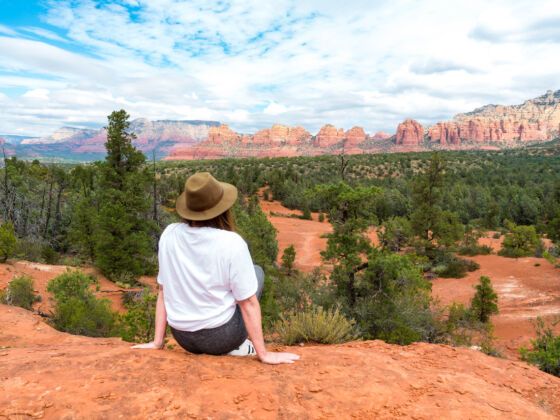Solstice light silvers and goes gray. The air is heavy with the scent of a desert river. My friend and I carry some of her partner’s ashes down a rocky slope to the Verde River in Central Arizona — more accurately, we brace and skitter our way to what we hope is the shoreline. We want to give part of him back to the river he loved so much.
A soft rain begins to fall. What might have been shoreline is muck. There is no way to get to the water. “No good,” she says. “Let’s go back up to the bridge in Camp Verde.” We start up the sandstone we’ve just descended. It’s now nearly dark. I’d thought this would be an easy crossing to the river and hadn’t brought my hiking poles. My friend grabs my arm. I step up on a shallow ledge and feel my foot sliding in mud. My friend holds my arm tight, but it’s no help. There is nowhere to regain balance. I crash down on my left knee. I manage to turn on my back. The pain is a nauseating jolt. The world has become a movie.
